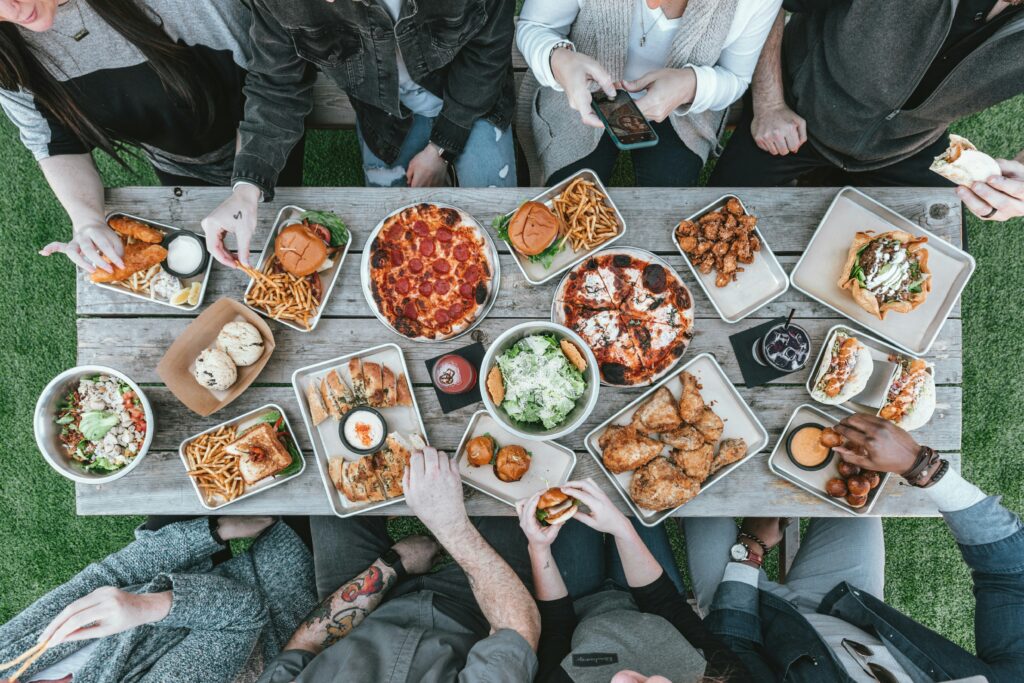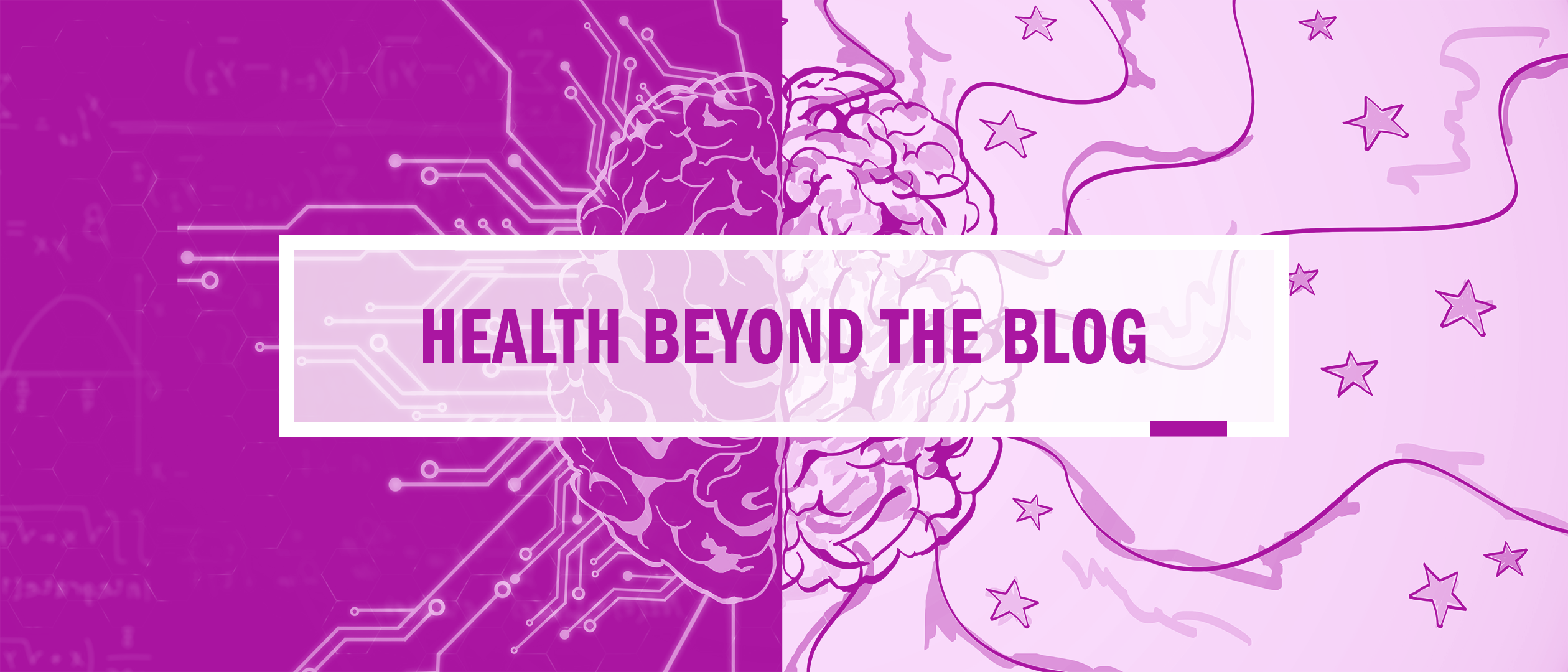New from the @EmoryCSHH News Team: Weight-loss drugs in the UK, why health insurance is tied to jobs, declines in drug overdoses, therapeutic food shortages in Africa, facing dementia and cognitive decline alone.
Intuitive Eating May Hold the Key to Reclaiming Autonomy and Rejecting the Diet Mentality
Relying on internal cues challenges traditional diets and promotes a healthier relationship with food and self through instinct and logic.
By Julia Roth
As of 2022, 44% of Americans are actively dieting, with 80% reporting having tried to diet at some point in their life. However, evidence indicates that diets often fail to deliver long-term weight loss, simply because quick-fix diets do not work. Research shows that one to two-thirds of dieters regain more weight than they lost upon ending their diet. One theory behind this phenomenon is that humans have evolved to avoid intentional weight loss, and their bodies will resist efforts to lose weight.
“All animals need some fat. But humans have evolved to have exceptionally high levels of fat, even thin humans,” says Daniel Lieberman, a paleoanthropologist and professor of human evolutionary biology at Harvard University, in the Chasing Life With Dr. Sanjay Gupta podcast.
“And so we are under exceptional sort of biological pressure to always put it on and keep it. As long as we have it for when we need it.”

The Science Behind Why Diets Fail
Nonetheless, despite this scientific evidence, individuals often perceive themselves as ‘failures’ or believe they ‘lack willpower’ to adhere to a diet, due to the strong diet-culture messages promoted across enticing advertisements and captivating social media content. These negative beliefs can lead individuals to develop detrimental psychological effects, including eating disorders, disordered eating habits, depression, stress, heightened body image concerns, and more.
Intuitive eating, a holistic approach to health, aims to resolve these issues, healing or preventing the negative psychological effects of living in a world dominated by diet culture, and, in turn, improving physical health as well.
Elyse Resch, MS, RDN, co-author of “Intuitive Eating: A Revolutionary Anti-Diet Approach,” defines intuitive eating as a self-care framework that involves “a dynamic interplay of instinct, emotion, and logic, the understanding of the interaction of three parts of the brain.”
The instinctual brain, she explains, recognizes and responds to the body’s natural hunger and fullness signals, guiding individuals to trust and honor their physiological needs. The emotional brain encourages the acknowledgment and understanding of how emotions drive food choices and eating behaviors. Finally, the logical brain helps individuals assess their eating habits and make informed decisions about their food choices from a palace of self-care. For example, despite a lack of hunger, one might eat because they know there will not be time to eat later.
This framework helps shape the ten guiding principles of intuitive eating: Reject the Diet Mentality, Honor your Hunger, Make Peace with Food, Challenge the Food Police, Discover the Satisfaction Factor, Feel your Fullness, Cope with Your Emotions with Kindness, Respect Your Body, Movement — Feel the Difference, and Honor Your Health: Gentle Nutrition.

The Role of Certified Counselors in Intuitive Eating
While there are books, worksheets, podcasts, and other self-guided resources to help individuals implement intuitive eating, they can also seek assistance from intuitive eating counselors. Any allied health professional with a bachelor’s degree in a health-related field, extensive training, appropriate credentials or licenses, and ACTP accreditation from the International Federation of Coaches or ACSM certification can take a course created by Elyse Resch and Evelyn Tribole to become certified in intuitive eating counseling.
“I worked at Lenox Hill in New York City and it’s just the system isn’t built to be weight inclusive; there’s a lot of problem,” says Leah Kern, non-diet dietician, and certified intuitive eating counselor, explaining why she takes on an intuitive eating approach in her dietitian practice. “It just felt like being a dietitian was a lot of finger-wagging at people being like, ‘You should eat this, you should do this,’ and that doesn’t feel good, you know. I just didn’t like that dynamic of like, ‘I know more than you and I’m going to tell you about what food you should eat.’ That’s not how I wanted to function, but that’s how the hospital system was set up.”
It is important to be aware, though, that in a society driven by social media, where individuals can build personal brands, many who are not intuitive eating counseling certified are capitalizing on promoting intuitive eating content. As a result, they are sharing incorrect messages about intuitive eating, such as the notion that it is simply ‘the hunger-fullness diet,’ which the ten guiding principles clearly show it is not. Thus, it’s especially important to ensure that any resources sought are created or provided by a certified counselor.
Misconceptions and Myths Debunked
Despite its growing popularity, some individuals express concerns about adopting an intuitive eating approach to nutrition. They fear that while it may improve their psychological health, it may lead to unhealthy eating patterns, such as binge eating or neglecting nutritional needs, since intuitive eating grants unconditional permission to eat and rejects the notion of ‘good’ or ‘bad’ foods. However, the truth is that these fears are myths. Granting oneself unconditional permission to eat reduces the likelihood of binging, as it eliminates feelings of deprivation. Moreover, refraining from labeling foods as ‘good’ or ‘bad’ allows the body to tap into its innate, intuitive wisdom which will signal its nutritional needs. Intuitive eating does not merely disregard physical health. It also improves the health of dieters by stopping weight cycling—weight loss and regain, better known as ‘yo-yo dieting’—and “there’s research to prove that weight cycling itself puts you at higher risk for all these medical problems, whether it’s cardiovascular disease or diabetes,” says Resch. Moreover, healing psychological health through intuitive eating further improves physical health, as the mind and body are connected.
“I’ve worked with several people with diabetes, high cholesterol, or different kinds of lab markers like that. And the research shows that in healing your relationship with food, it helps all health conditions, because it helps to lower your stress levels, it helps to reduce binge eating, which isn’t great for many different health conditions. It helps you to nourish yourself more consistently, which is beneficial for all different health conditions. So, it’s not like you go to a dietitian to improve your labs or you go to a dietitian for intuitive eating. If you go to a dietitian for intuitive eating, your labs will likely improve,” explains Kern.
All in all, intuitive eating offers a beacon of hope for those seeking freedom from the harmful cycle of dieting. People are born intuitive eaters; however, diet culture disrupts this natural attunement with the body. Intuitive eating challenges the societal norms imposed by diet culture, and according to Resch, gives individuals “a way to have their own personal autonomy.” Since 1995, over 700,000 copies of Intuitive Eating have been sold, with the book now in its fourth edition. As the mind-body self-care eating framework continues to grow in popularity, more individuals will learn to rebuild their trust in their bodies and create a more inclusive, healthy, and holistic approach to eating and living.


